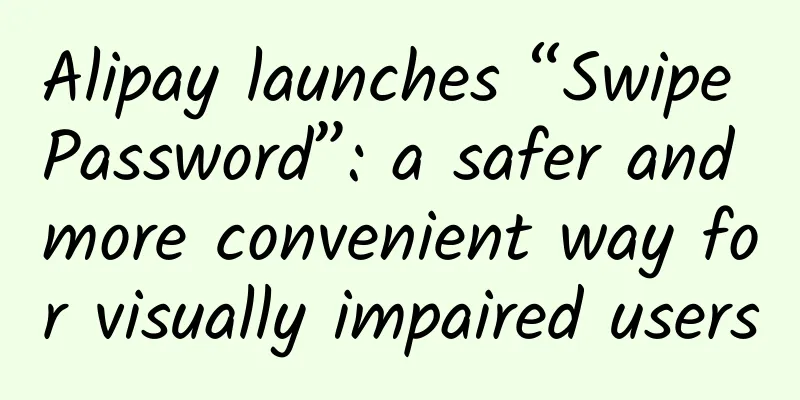The Value of Code Review — Why, When, and How?

|
For many companies, code review is an important part of developers' daily work. Through code review, problems in the project can be discovered early, communication and exchanges between colleagues can be promoted, and sparks of wisdom can be generated in discussions. However, it is not an easy task to successfully implement code review. Why do we need to conduct code review, when do we do it, and how do we do it? These are the three important questions before us. In response to these three questions, developer Lisa Tjapkes wrote an article about her own experiences and lessons. In my recent project experience, we conducted extensive and formal code reviews. This process greatly improved the code quality of the project, reduced the waiting time for new feature development in the project, and promoted the dissemination and sharing of knowledge among the entire team. I also found that code reviews did not delay the development time of the project, but instead increased the productivity of developers. Benefits of Code Review We have found that code reviews bring many benefits to every stage of a project:
Tips for efficient code review Code review can cause project delays if not handled properly. Using the right tools and techniques can prevent a lot of time being wasted on code review and improve the quality of the code. Using feature branches The benefits of this practice are self-explanatory, but it provides more specific benefits for code review. Feature branches mean that you can isolate the code that needs to be reviewed to only that which is relevant to a specific feature. Feature branches also allow for quick context switching when the code is ready for review. You can switch to a new feature while the current code is under review, and quickly switch back if you need to discuss feedback on the reviewed feature. Isolate reviews into small changes Small changes take less time to review than large changes. When reviewing large changes, you have to look at not only many lines of code, but also a lot of dependent code to truly understand them. As a result, the time spent reviewing the code is not linearly proportional to the amount of code modified. Isolating the code to be reviewed into small changes can reduce the mental burden on the reviewer and make the review process smoother. Use tools designed specifically for code review This may seem simple, but it is very important. Some important features include diffing, being able to annotate changes line by line, and notifying everyone when the reviewed code has changed. My team uses GitHub to manage project code, and we use GitHub's pull request feature to manage code reviews. Checklist It's probably not necessary to have something very complex or overly structured, but if something pops up, using a checklist might be a good idea. Constructive input Saying something like "add more comments" is meaningless and not very helpful. If an interface has no comments, there may be a dedicated document to explain it. If you find something unreasonable, you should point it out clearly and judge whether the design can be improved or whether there is a logical error. Focus on truly understanding the behavior of your code, and making sure that others can quickly understand it when they need to maintain it. Everyone participates Even the most experienced architects or star developers make mistakes. Therefore, it is important that everyone can participate in the code review process. In particular, this is also a good learning opportunity for many junior developers or developers who have just joined the project. There must be a review process In the beginning, our project did not have a formal review process. We would just open a pull request, wait for someone to review it, and eventually someone would merge the changes. This way of working was very inefficient. Sometimes no one reviewed a pull request for days, and sometimes someone else merged the request before one person gave feedback. In addition, some developers reviewed a lot more code than others. In short, we had no process and our efficiency was extremely low. ***We recognized this and created a formal structure to guide how to conduct code reviews, which accelerated the efficiency of the review. A review process should at least cover the following points:
Should I do code reviews on my projects? I think code review is a good thing for many projects, but it is not a one-size-fits-all solution. Code review is suitable for projects such as:
On the contrary, code review does not bring much added value to the project in the following situations:
|
<<: A collection of top-notch front-end special effects resources#001
>>: Using Clang Address Sanitizer directly on Xcode 7
Recommend
2017 CR-V price list released, price slightly increased
Honda's fifth-generation CR-V will go on sale...
Recommend 2 newly discovered treasure APPs, I really love them
The niche APP I shared with you last time was wel...
How to get 100,000+ users through traffic promotion activities?
When we think of growth, what’s the first thing t...
On the road of parenting, these 4 minefields must be avoided
Now, some parents have fallen into a big minefiel...
Take good care of yourself during the "Three Nines" and you will be healthy in the coming year! These health tips are simple and practical
As the saying goes, "Replenish your body in ...
Can't do strenuous exercise? Retinal tears? People with high myopia should not ignore this checkup every year
Many people think The consequence of myopia is th...
New Audi A4L review: How does this entry-level luxury car, which has been hailed as a god car by car reviewers, perform?
As living standards continue to improve, people&#...
"Great Beauty, Smart Economy"! BYD's second-generation Song Pro DM-i and Hiace 05DM-i, the national SUV, lead the new trend of A-class SUV
On September 23, the Hiace 05DM-i and the second-...
The matching method of Baidu SEM promotion keywords has been upgraded!
What is keyword matching? Just like Cupid’s arrow ...
A summary of advertising styles and billing models of Toutiao, iQiyi, etc.!
Information flow advertising style: 1. Large imag...
How much does it cost to rent an IDC computer room in Shanghai or a server in Shanghai?
How much does it cost to rent an IDC computer roo...
Xu Hui Hunan HD compression and loosening
Xu Hui Hunan High Definition Compression and Mobi...
Beijing Consumer Association announces hot issues for complaints! What are the main ones? Complaints about masks accounted for 43.86%
Due to the impact of the epidemic, this year'...
How to plan a lottery event to improve user experience?
Treat the activity as a product. Every change and...
If I make the Scissor Hand gesture towards the camera or the screen, is there a risk of my fingerprints being leaked?
In modern society, there are many occasions where...









